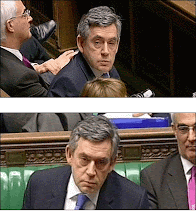Hello Britain
Evan Davis has a thought provoking article on how interest rates work. There'll be a gong coming your way, Evan, as thanks for not mentioning "Govt expenditure" as one of the main components of spending that matter to monetary policy:
"In principle, there are only three main components of spending that much matter to monetary policy: consumer spending, business investment and exports and trade."
For the (not quite) full story:
http://www.bbc.co.uk/blogs/thereporters/evandavis/2008/01/how_interest_rates_work.html
UPDATE:
Bugger, his comments have not been updated (on that post) since I submitted my comment, which was:
"In principle, there are only three main components of spending that much matter to monetary policy: consumer spending, business investment and exports and trade."
Err, there’s a big, fat UNPRODUCTIVE elephant in this room: government spending.
In my experience the MOST inflationary type of spending around. For every new/restructured quango, dept, commission or Ministry:
- employing staff (in competition to the productive sector and other govt depts)
- renting office space to house them (ditto)
- printing letterhead, designing corporate identity manuals
- building websites
- purchases/leasing computer networks and the installation thereof
- advertising
And, at the end of it, there is usually NOTHING to show for it at the end, except a whole lot of reports and recommendations that gather dust. This is UNPRODUCTIVE work. Conventional wisdom says improvements in productivity lifts national income. So ever increasing govt spending on marginal issues or pet projects tends to fuel inflation in wages, commercial rents, IT services, advertising. All these items are cost inputs to real businesses.
Thursday, January 17, 2008
Subscribe to:
Post Comments (Atom)







No comments:
Post a Comment